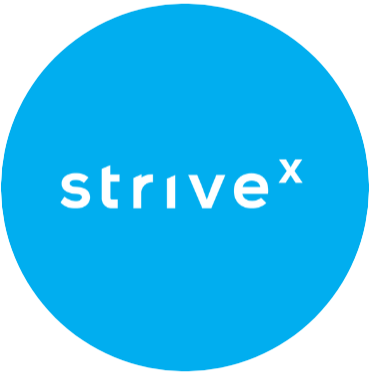Launching a consulting business might seem like a natural step for professionals with deep industry expertise or a desire to work independently. It can offer flexibility, scalability, and low upfront costs, but starting out may also come with its fair share of decisions, paperwork, and strategic planning.
At Swoop, we’ve worked with countless entrepreneurs who are turning their knowledge into thriving businesses. From navigating registrations to securing the right funding tools, we understand the challenges self-employed consultants and small firms face in the early stages. This guide outlines a detailed start-a-consulting-business checklist, designed to help you build a solid foundation and take meaningful action toward launching your consultancy.
Steps to start a consulting business
While every consulting business is unique, most successful launches share a few foundational steps. From understanding your market to choosing the right business model, taking time to lay the groundwork could make a meaningful difference in how smoothly your business operates and grows. The checklist below outlines key actions that may help guide your setup process with clarity and confidence.
1. Do market research
Before promoting your services, it may be wise to understand the landscape you’re stepping into. Strong market research could help you identify both competition and opportunity.
Ask yourself:
- Who is currently offering similar services in your niche?
- What problems are businesses trying to solve that you’re uniquely qualified to address?
- Are there industries or regions where demand for your expertise is growing?
Example: A tech consultant focusing on AI adoption might discover that small manufacturing firms lack internal expertise but are eager to modernize. This insight could shape everything from service offerings to marketing strategy.
2. Register as a business
To operate legally and present yourself professionally, registration is key. The process varies by state, but common steps include:
- Choosing a business structure (e.g., sole proprietorship, LLC, or S corporation)
- Registering your business name through the appropriate state agency
- Applying for an EIN (Employer Identification Number) via the IRS
- Researching industry-specific licenses or permits, if applicable
Tip: An LLC may offer liability protection while keeping admin requirements relatively simple — something many solo consultants opt for.
3. Establish your business model
Not all consulting revenue is created equal. Establishing how you’ll charge for your services could help you maintain consistent income and set client expectations.
Here are a few common models:
- Hourly billing: Best for flexible or short-term engagements
- Project-based pricing: Ideal for fixed-scope work with clear deliverables
- Monthly retainers: Provide ongoing support and predictable revenue
- Performance-based pay: Compensation tied to specific outcomes (e.g., cost savings or growth metrics)
Example: A marketing consultant might offer project-based pricing for brand development but use a retainer for managing monthly social media.
4. Define your services
Clients are more likely to hire you when they clearly understand what you do. Define your services with specific outcomes and deliverables in mind.
Rather than listing broad categories like “business consulting,” break it down into:
- Strategic planning sessions
- Operational efficiency audits
- Financial forecasting workshops
- Leadership training or team coaching
Clear service definitions not only help clients but can also simplify your pricing, packaging, and proposals.
5. Define a target audience
Pinpointing your ideal clients streamlines your marketing efforts and maximizes profitability. Ask yourself: Who will benefit most from my expertise? Perhaps you’re an IT consultant focusing on cybersecurity for small healthcare practices, or maybe a financial advisor specializing in retirement planning for mid-level professionals. Clearly defined audiences simplify client acquisition and boost referral rates, as satisfied clients easily identify who else could benefit from your services.
6. Choose your location
Where you operate — whether physically or virtually — could influence your image, costs, and flexibility.
Options include:
- Home office: Minimal overhead and tax deductions
- Coworking space: Great for meetings and networking
- Virtual office: A professional business address without leasing physical space
Pro tip: If you’re working remotely via an online business, but need to appear polished to corporate clients, a virtual business address or coworking membership might be worth the investment.
7. Tools of the trade
Having the right tech stack can streamline your consulting operations, improve productivity, and reduce admin time.
Useful tools might include:
- Accounting software: QuickBooks, FreshBooks, or Wave for invoicing and tracking expenses
- Calendar scheduling: Calendly or Acuity for client bookings
- CRM platforms: HubSpot or Zoho to manage leads and follow-ups
- Project management: Asana, Notion, or Trello to keep client work organized
- Video conferencing: Zoom or Google Meet for virtual consultations
You may not need every tool at once, but identifying your tech needs early could save time and frustration later.
8. Set your pricing
Determining pricing can be tricky — too high and you risk losing clients; too low, and you undermine your expertise. Begin by assessing market rates, your financial goals, overhead costs, and the value you provide. If similar consultants charge $100/hour, you might initially price slightly lower to attract initial clients, then gradually increase rates as your reputation grows. Flexible pricing strategies like packages, tiered services, or introductory offers can also help you enter the market confidently.
9. Develop a marketing strategy
Getting your first clients may require visibility, credibility, and trust. A marketing strategy doesn’t need to be flashy, but it should be intentional.
Core tactics might include:
- A simple website with clear services, your bio, and a contact form
- LinkedIn optimization and consistent content sharing
- Networking through local events or virtual communities
- Client referrals and testimonials
- Case studies to showcase results and build authority
10. Consider hiring employees
When you’re first starting out, managing every aspect of your consulting business yourself can seem doable. However, as your business expands, delegating tasks becomes important. Identify tasks that, while important, can distract you from the core work that truly drives growth, such as bookkeeping, administrative duties, or social media management. Outsourcing these tasks or hiring part-time help enables you to focus on strategic, high-impact activities, keeping your consultancy efficient and growth-oriented.
Mistakes to avoid when starting a consulting business
While starting a consultancy can be rewarding, potential pitfalls can delay success. Avoid these common mistakes:
- Waiting too long to launch: Many aspiring consultants overanalyze their approach, delaying revenue-generating activities. Instead, start small, learn fast, and refine as you grow.
- Ignoring cash flow: Financial management is crucial. Monitor your income and expenses closely, and always maintain a buffer or emergency fund.
- Overlooking legal protection: Ensure your business is legally compliant and properly insured. Neglecting this can expose you to unnecessary risks.
- Marketing sporadically: Consistent marketing drives consistent business. Sporadic efforts typically yield unreliable results, leading to unnecessary stress and income fluctuations.
How Swoop can help
Starting a consulting business involves significant financial, structural, and growth strategy decisions. At Swoop, we simplify these choices by providing SMEs with tailored funding solutions and business registration guidance. With our easy-to-use platform, you can effortlessly explore and compare suitable business loans, credit options, and funding opportunities specifically tailored to consulting ventures.
Whether you’re just beginning your journey or looking to scale your consultancy to the next level, Swoop acts as your trusted partner. We help streamline financial complexities, ensuring you have the necessary resources to succeed. Ready to confidently start your consulting business? Check available business loans and funding solutions with Swoop today.













 yet? Register here!
yet? Register here!